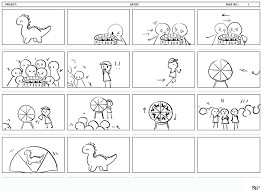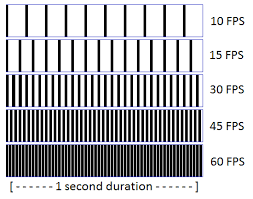Materials and tools to build a pantograph
Cardboard, xacto knife, T-shaped pin (4 paper fasteners) , scissors, skewer or ice picker, A4 paper, sharp pencil
Materials and tools to build a drawing machine
cardboard, scissors, cutting knife, pencil, hot glue gun, skewer, clipper
Problem: My box doesn't have a slope.
It won't work because the ball won't move down when the box is flat.
Materials and tools
- Corrugated cardboard
- Two drinking straws
- Two wooden skewers
- Four CDs (that are okay to get scratched)
- Sponge
- Paper clip
- Assorted rubber bands
- Tape
- Scissors
- Flat, hard surface for testing your car
- Hot-glue gun (optional)
What is this called? 
Storyboard
type of a simple machine to make the pantograph move
lever 
What are the simple machines used in this machine?
wheel and axle
lever
What kinds of simple machine?
Lever
Wheel and axle
The simple machine
Wheel and axle
What does FPS stand for?
Frame Per Second

How does a pantograph move
Two short unattached arms hold together push and pull the longer arms to make the pantograph move.
The arm with a drawing medium moves back and forth in a circular motion when one of the handles rotates and in response other smaller wheels move to make a push and pull motion to leave mark on a paper in the middle. The end result should be a cycloid drawing.
What forces change the motion of the ball in your pinball machine? Give a example for each force.
Potential energy: When a launcher is pushed down
Kinetic energy: when a launcher forces a ball up
Gravitational kinetic energy: When a ball rolls down the ramp
What generates energy to make the car move forward?
Elastic energy
Rubber band
How should an animation/ video start and end?
Describe what should be included.
Start: Title with a title of the film
End: Credits with people who directed and involved in the making 
What is the main function of a pantograph?
The arms arre jointed levers and the hinges help them move in and out with a scissor-like action. It transfer an image you trace to be drawn bigger. (or enlarge or reduce pictures)
How many wheels you need to complete building this machine to work?
3 small wheels, 1 big wheel.
How do you build a launcher?
Use an elastic band and a skewer
1.cut the elastic band and tied it to a long piece of skewer
2. tied smaller pieces of wood to the ends of the elastic band
3. On the side of your frame, poke the skewer through and glue down the smaller skewers.
4. Add a bit of cardboard to the top end and glue it down - this will be used to push the ball at the start of a game.
Steps to build a rubber band car at least in 5 steps
Cut a piece of corrugated cardboard that is slightly longer and wider than the length of one straw.
Tape the two straws to the cardboard, parallel to each other, one at each end.
Cut a rectangular notch in the cardboard on one end, about one inch by one inch. This will also cut a segment out of the middle of one of the straws.
Insert a wooden skewer through each straw. These will be your car's axles.
Cut four small squares from the sponge and carefully press them onto the ends of the skewers.
Attach CDs to the axles to form wheels. Do this by stuffing a piece of sponge into the hole in the middle of the CD, then using tape to secure the CD and prevent it from wobbling.
Make sure your car can roll smoothly. Put it down on a flat surface and give it a push. If necessary, adjust the wheels so they are all parallel and don't wobble.
Loop a rubber band through itself around the middle, exposed part of the wooden skewer (where you cut out a notch in the cardboard and straw).
Tape the rubber band to the skewer to prevent it from slipping—when the skewer rotates, the rubber band should rotate with it.
Cut a small slot in the middle of the piece of cardboard.
Hook a paper clip through the slot.
Hook the free end of the rubber band onto the paper clip.
Wind up the axle that's connected to the rubber band. If necessary, pinch the rubber band on the axle when you start, to prevent it from slipping.
Fill in the blanks.
A good stop motion animation will have a __________ transition between __________
Smooth, pictures
Describe a pantograph
What is the end product of the drawing machine
spirography
multiple layer of lines create a circular shape
How do you build flippers?
Poke a hole in your main piece for the pencil to go in.
Then cut out 3 rectangles of cardboard and poke a hole in them.
Add a small piece of wooden skewer on to one side, and for the second one add the skewer on the opposite side. Then glue the popsicle stick to this little block, making sure the flipper is in the starting position when it is straight.
Next create the pushers that you push on the side of the fram to make the lfippers move. Attach a large square of cardboard to one end of a skewer, poke it throught the side of the box and glue a small box on the other end of the skewer. F
inally hooked an elastic band around it, to the other skewer. This all sounds quite confusing written down, but if you look at the picture it should make a lot more sense.
Problem: the rubber band unwound but the axle didn't spin
What could be a possible solution?
The rubber band might not have been attached securely enough to the skewer. Try attaching it to the skewer by tying a tight knot or using hot glue.
Fill in the blanks.
Stop motion animation is also known as ‘________________animation’
'frame by frame'
Problem: The flippers are attached but don't move
What could be a possible solution?
Missing rubber bands or elastic of the rubber band(s) can be too strong or weak to create a push and automated pull when the handle is released.
The parts of the flippers are not aligned properly. In this case, make the side of the middle part that a handle push in longer to keep it from pushed down.
Problem: the wheels spun but the car didn't move forward at all
What could be a possible solution?
there might not have been enough friction between the CDs and the ground. Try using the car on a different surface. If that still doesn't work, try giving your CDs more grip by stretching rubber bands around them or by putting a bead of hot glue along the edges. (Let the glue dry completely before you test your car again.)
What is the name for overlaying your current frame on top of the previous frame?
Onion Skinning
How does a stop motion animation work?
Many photos are taken making of an object with slight adjustments